In this short video, I present a recent article on religion and leadership published in the Academy of Management Perspectives ‘Faith and Management Symposium August 2019 Issue.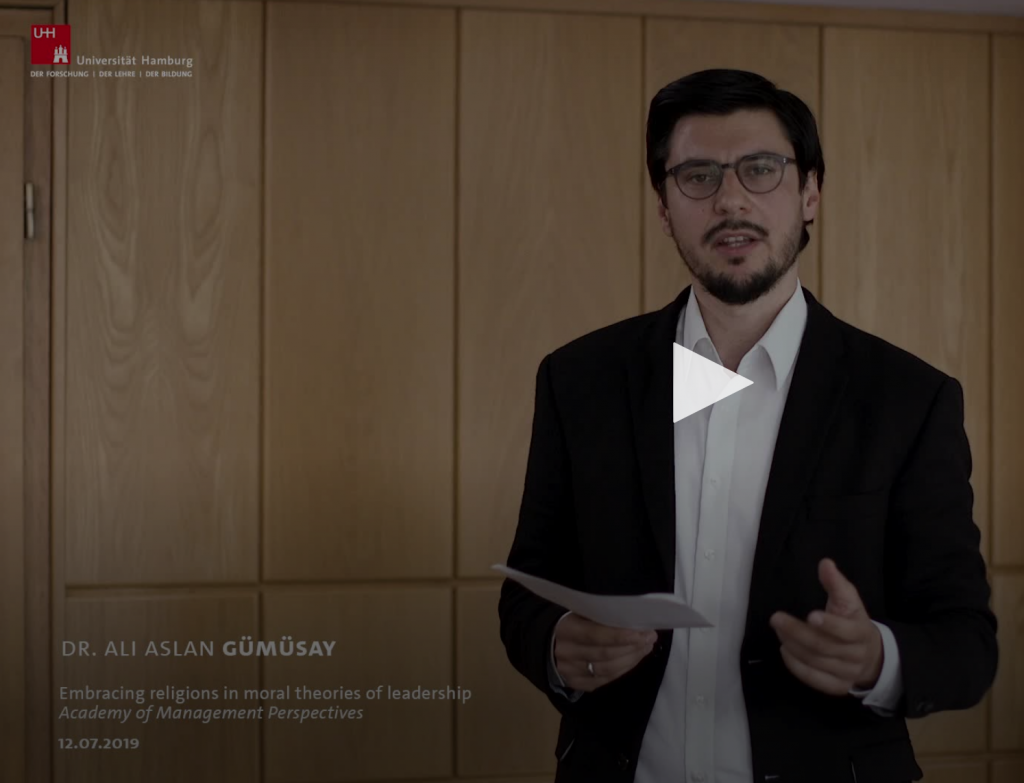
1st Vienna Symposium on Faith & Management
The 1st Vienna Symposium on Faith & Management just finished. It was wonderful co-organizing the event with Martin Steinbereithner and Wolfgang Mayrhofer at Vienna University of Economics & Business. Great conversations, paper presentations, and keynotes by David Miller and Dorothea Alewell. Much more to come, I hope.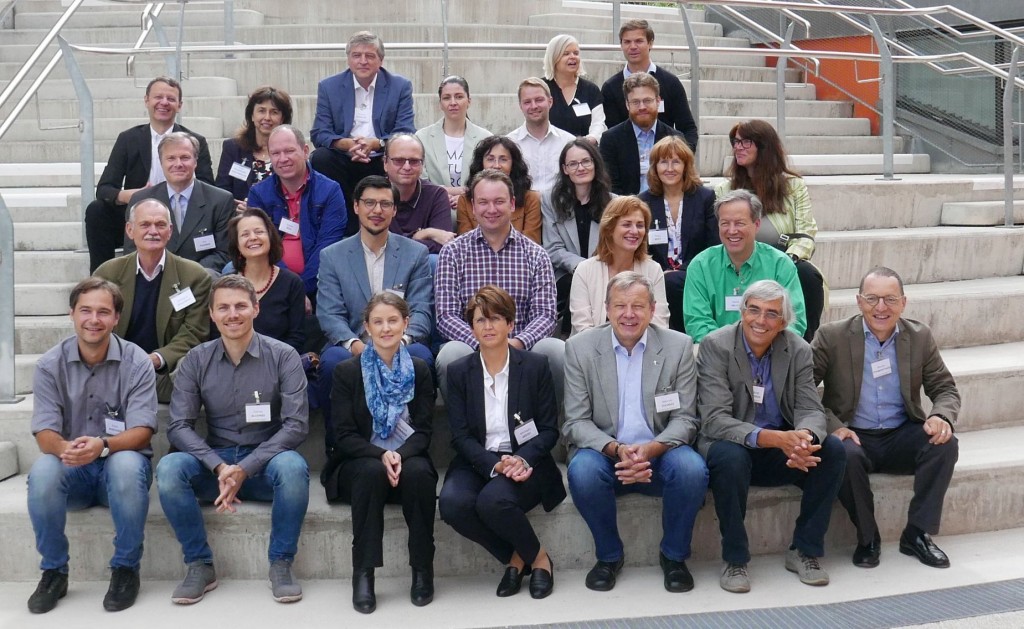
Religions in moral theories of leadership
New article “Embracing religions in moral theories of leadership” published in Academy of Management Perspectives.
Abstract: Religions are social constituents of present 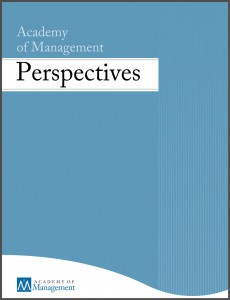 societies that need to be integrated into theories of leadership. In this article, I outline how three distinct characteristics, particularly present in Abrahamic religions, can significantly impact leadership principles and practices: a belief in the existence of and relationship to a God, the faith in and pursuit of a hereafter purpose, and the belief in and attempted adherence to a sacred scripture. Subsequently, I classify two approaches to examine their impact on leadership: a scripture-based and an empirical-based lens. I then highlight how the distinct characteristics can either inform and blend into or transform and modify moral theories of leadership.
societies that need to be integrated into theories of leadership. In this article, I outline how three distinct characteristics, particularly present in Abrahamic religions, can significantly impact leadership principles and practices: a belief in the existence of and relationship to a God, the faith in and pursuit of a hereafter purpose, and the belief in and attempted adherence to a sacred scripture. Subsequently, I classify two approaches to examine their impact on leadership: a scripture-based and an empirical-based lens. I then highlight how the distinct characteristics can either inform and blend into or transform and modify moral theories of leadership.
This figure offers a graphical summary:
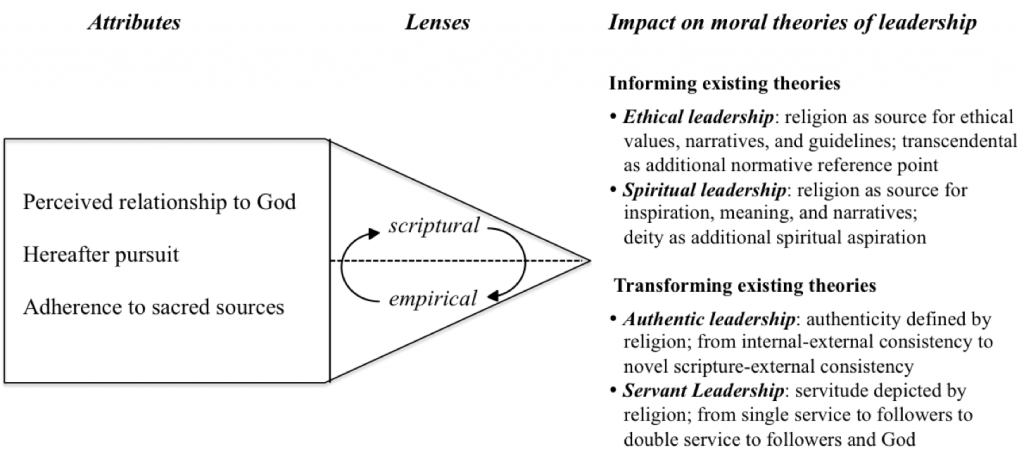
The Religious Institutional Logic
Happy to announce that the article “The Potential for Plurality and Prevalence of the Religious Institutional Logic” has been published at Business & Society.
Religion is a significant social force on organizational practice yet has been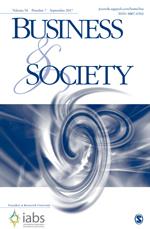 relatively underexamined in organization theory. In this article, I assert that the institutional logics perspective is especially conducive to examine the macrolevel role of religion for organizations. The notion of the religious logic offers conceptual means to explain the significance of religion, its interrelationship with other institutional orders, and embeddedness into and impact across interinstitutional systems. I argue for intrainstitutional logic plurality and show that specifically the intrareligious logic plurality has been rather disregarded with a relative focus on Christianity and a geographical focus on “the West.” Next, I propose the concept of interinstitutional logic prevalence and show that the religious logic in particular may act as a metalogic due to its potential for uniqueness, ultimacy, and ubiquity. Through illustrations from Islamic Finance and Entrepreneurship, I exemplify implications of logic plurality and prevalence for organizations and societies.
relatively underexamined in organization theory. In this article, I assert that the institutional logics perspective is especially conducive to examine the macrolevel role of religion for organizations. The notion of the religious logic offers conceptual means to explain the significance of religion, its interrelationship with other institutional orders, and embeddedness into and impact across interinstitutional systems. I argue for intrainstitutional logic plurality and show that specifically the intrareligious logic plurality has been rather disregarded with a relative focus on Christianity and a geographical focus on “the West.” Next, I propose the concept of interinstitutional logic prevalence and show that the religious logic in particular may act as a metalogic due to its potential for uniqueness, ultimacy, and ubiquity. Through illustrations from Islamic Finance and Entrepreneurship, I exemplify implications of logic plurality and prevalence for organizations and societies.
Die Rolle von Religionen in der Wirtschaft
Artikel aus der Zeitschrift Bibel & Liturgie hier zum Download
Die Thematik von Religionen in der Wirtschaft ist heute 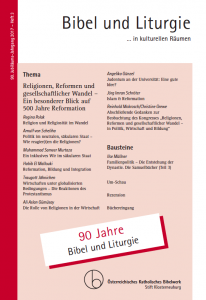 weitestgehend ein Tabu. Über Religion redet man nicht. Man schweigt sich aus. Gleichzeitig werden Spiritualität, Meditation und Yoga salonfähig. Sie versuchen sich als mögliche Alternativen für Sinnstiftung und Orientierung in einer chaotischen und komplexen Welt. Doch das Thema Religion scheint nicht ausgestanden zu sein. Im Gegenteil: Es beherrscht den politischen Diskurs, spaltet Gesellschaften und Gemeinschaften, ist fast omnipräsent in den Medien. (…)
weitestgehend ein Tabu. Über Religion redet man nicht. Man schweigt sich aus. Gleichzeitig werden Spiritualität, Meditation und Yoga salonfähig. Sie versuchen sich als mögliche Alternativen für Sinnstiftung und Orientierung in einer chaotischen und komplexen Welt. Doch das Thema Religion scheint nicht ausgestanden zu sein. Im Gegenteil: Es beherrscht den politischen Diskurs, spaltet Gesellschaften und Gemeinschaften, ist fast omnipräsent in den Medien. (…)
Der Artikel ist wie folgt gegliedert: Zunächst mache ich einen Schwenker in die Wirtschaftswissenschaft, genauer Betriebswirtschaftslehre, und die annähernde religiöse Abstinenz in ihrer Lehre und Forschung. Im Anschluss befasse ich mich mit der Rolle von Religion in der Wirtschaft und werde hier auf zwei Arbeiten von mir als Beispiele eingehen: eine zum Thema Religion und Führung und eine zum Thema Islam und Unternehmertum. Schließlich unterbreite ich einige Vorschläge zum Umgang mit Religion, die sich auf die Praxis, Lehre und Forschung beziehen.